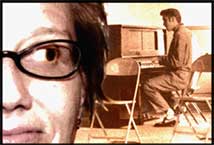1.23.2009
Mona, Jr.
This from the Grundy County, Tennessee Historical Society, taken from a message board on ancestry.com. For what it's worth:
1700-1800 Naming Patterns
As early as the American Revolution and extending until the 1850s most families of English descent (and of the Scots who settled in North and South Carolina) followed this naming pattern:
First son: Father's father
Second son: Mother's father
Third son: Father
Fourth son: Father's eldest brother
First daughter: Mother's mother
Second daughter: Father's mother
Third daughter: Mother
Fourth daughter: Mother's eldest sister
First daughter of second wife was named after the first wife.
I have noticed evidence that my Tennessee ancestors used these naming conventions by records that show up soon after they entered the (then un-formed) state of Tennessee, around 1809. So, given that knowledge about it the conventions it can make geneological research a little easier. That is until about the time of the Civil War when all hell broke loose and education as well as the family farm was gone with the wind. One section of my family dropped an entire consonant off the end of their surname. During what I would describe the Dark Ages of post-bellum years they seem to have dropped names altogether and taken up with embarrassing nicknames which were as much a physical description or a resume as anything. I get 'Cap' and while no one has to explain 'Nose' to me, I have to say that it seems a bit less than dignified. I know of other families where children were named, not known as, but named Sister.
In my extended family, telling generations of folks in the same household or at family gatherings who have the same name apart is at the very least confusing and sometimes leads to very unfortunate naming conventions that seem to stick for life. An example is when a man is known as "Little (insert name here)" well into his middle years, or when someone has to go by "Jr." their entire life. In this day when divorce is more likely to claim a first wife than death during childbirth, it would be a hard pill to swallow to have to call your beloved first daughter by the ex-wife's name!
In my immediate family my parents seem to have had either dual narcissistic fits or a genuine frenzy of cross-homage when I was named for my mother and my brother was named for my father. My younger sisters didn't fare much better, having first and middle names borrowed from grandmothers or aunts.
It's worse in my husband's family. I can count on the fingers of two hands the number of recycled names within his immediate family of six children, and their children. His family found it necessary to call up former family surnames to use as middle names to distinguish one person from another.
I am not complaining too loudly though. These practices have faded away in so many contemporary families due to declining family size and an unsettling tendency to name our progeny for movie stars, or from books that track names statistically. I don't know about the wisdom of choosing a name because 5% of the children in your child's class will also have it.
All this being said, honest to god I have no idea how my grandmother visualized 'Mona' from her Tennessee mountain home just after World War II. Best I know my blessed mother just accepted it with grace and got on with it. I have spent the better part of 50 years trying to interpret it.
Subscribe to:
Post Comments (Atom)


3 comments:
Grannie says, "When I was a little girl, there was a family that lived up close to my Grannie, Nancy Jane Dykes. This family had 2 girls: Mona and Violet McGovern. They were really pretty girls, and I thought it was a pretty name. (You could have been named "Violet"!) I wanted my daughter to be called Mona, not any other name, so I gave her the middle name, Griswold." (That DID insure that she wouldn't be called by her middle name!)
Thanks, that solves a mystery for me!
In the future I can be tortured by where Mrs. McGovern got it.
It is a pretty name, just unusual for those parts.
I just discovered that "Mona" means "little noble one" in ancient Irish: http://www.babynamesofireland.com/
Post a Comment